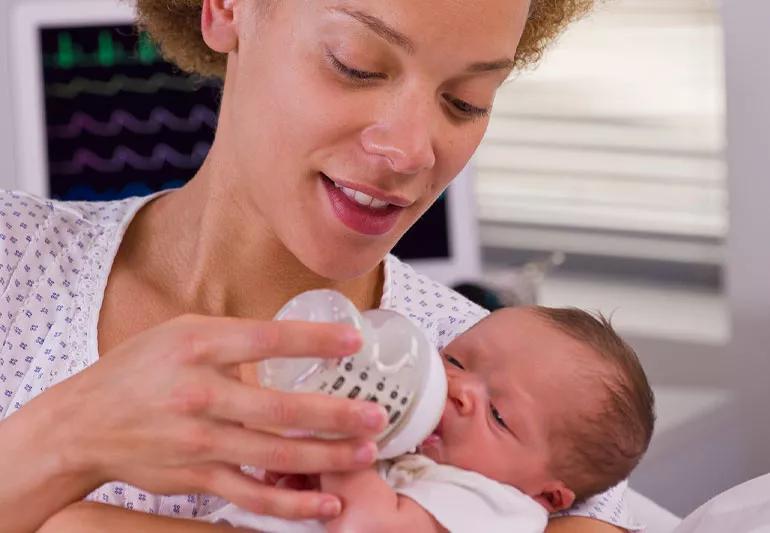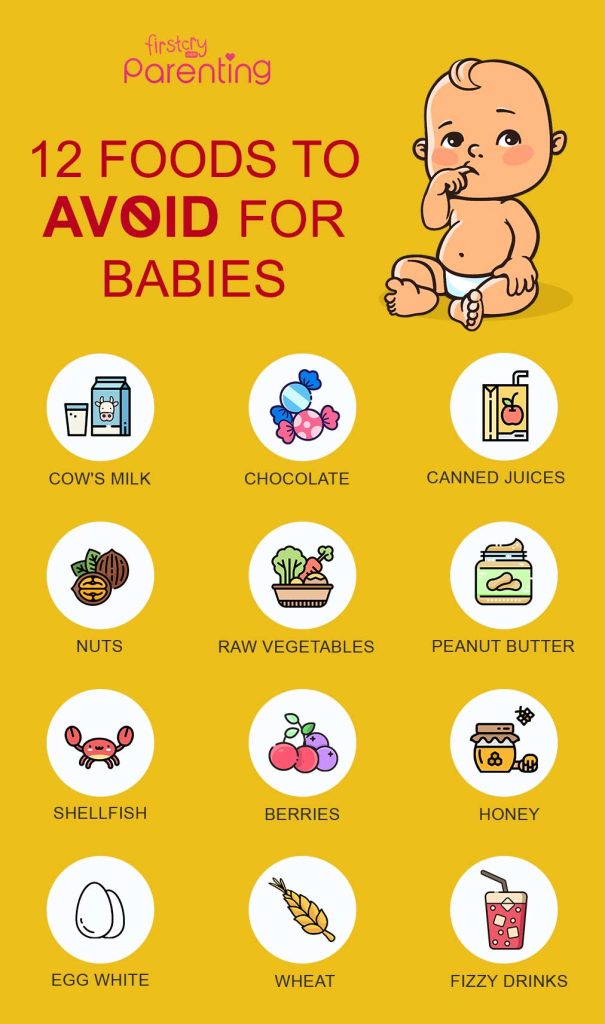**Are Baby Food Pouches Safe? ** Baby food pouches are generally safe when used correctly.
Parents should check ingredients and supervise feeding. Baby food pouches offer convenience for parents and caregivers. They are easy to use and transport, making feeding on-the-go simpler. Pouches often contain healthy ingredients, but it’s essential to read labels. Some may have added sugars or preservatives.
Parents should choose organic options when possible. Always supervise your child while eating to prevent choking. Pouches should complement fresh, homemade foods to ensure a balanced diet. Moderation is key to avoiding over-reliance on packaged foods. Regularly consult with a pediatrician for personalized advice. This will ensure your baby receives the best nutrition for their growth and development.

Credit: www.amazon.com
Introduction To Baby Food Pouches
Baby food pouches have become a popular choice for parents. They are easy to use and can be carried anywhere. These pouches are designed to make feeding time easier and more fun.
Rise In Popularity
In recent years, baby food pouches have seen a significant rise in popularity. Many parents choose these pouches because they are convenient and mess-free. The colorful and fun designs attract both parents and babies.
Below is a table showing the rise in sales of baby food pouches over the past five years:
| Year | Sales (in millions) |
|---|---|
| 2018 | 50 |
| 2019 | 70 |
| 2020 | 90 |
| 2021 | 120 |
| 2022 | 150 |
Convenience Factor
Baby food pouches offer a high level of convenience. Parents can easily pack them in a diaper bag. They do not require spoons or bowls.
- Easy to carry
- No need for spoons
- Mess-free feeding
These pouches also have resealable caps. This feature allows parents to save unfinished food for later. It helps in reducing waste and saving money.

Credit: mamainstincts.com
Nutritional Content
Parents often wonder if baby food pouches are nutritious. The nutritional content is crucial for a baby’s growth. Let’s explore the different aspects of the nutritional value of these convenient pouches.
Ingredient Quality
The quality of ingredients in baby food pouches varies. Always check the labels. Look for organic and non-GMO options. Avoid added sugars, salts, and artificial preservatives.
High-quality pouches contain whole fruits and vegetables. Some even include grains and proteins. These ingredients provide essential vitamins and minerals.
Nutrient Preservation
Nutrient preservation is vital for ensuring babies get the best nutrition. The processing method affects nutrient levels. Many pouches use high-heat processing. This can reduce the vitamin content.
Look for pouches that use cold-pressed methods. Cold-pressed preserves more nutrients. Some pouches also add extra vitamins and minerals. This helps maintain nutritional balance.
| Ingredient | Benefits |
|---|---|
| Fruits | Rich in vitamins and antioxidants |
| Vegetables | High in fiber and essential minerals |
| Grains | Good source of carbohydrates |
| Proteins | Crucial for muscle growth and development |
Choosing the right baby food pouch involves checking the ingredient list. Ensure it meets your baby’s nutritional needs. Always opt for high-quality and nutrient-preserved options.
Potential Health Risks
Baby food pouches are convenient. They are easy to use and carry. But are they safe? Let’s dive into some potential health risks associated with these pouches.
Harmful Additives
Some baby food pouches contain harmful additives. These can include preservatives, artificial flavors, and colors. These additives can be bad for your baby’s health. It’s important to read labels carefully. Avoid pouches with a long list of ingredients.
| Common Additives | Potential Risks |
|---|---|
| Preservatives | May cause allergies |
| Artificial Flavors | May affect taste preference |
| Artificial Colors | Linked to hyperactivity |
Sugar And Salt Levels
High sugar and salt levels are another concern. Some pouches have too much sugar or salt. This can lead to health issues like obesity and high blood pressure. It’s best to choose pouches with low sugar and salt content.
- High sugar can cause tooth decay
- Too much salt can harm kidneys
- Check labels for added sugars and salts
Always consult your pediatrician. They can help you make the best choices for your baby.
Dental Concerns
Baby food pouches are convenient and popular. But, they raise dental concerns. Parents should be aware of the potential risks to their baby’s teeth.
Tooth Decay Risk
Baby food pouches often contain pureed fruits and vegetables. These foods are high in natural sugars. Constant exposure to sugars can lead to tooth decay. Sucking on pouches for a long time keeps sugars on the teeth. This can harm the enamel.
Frequent use of pouches can also affect chewing skills. Babies might prefer sucking over chewing. This can delay the development of strong teeth and gums.
Proper Oral Hygiene
Maintaining good oral hygiene is crucial. Parents should start cleaning their baby’s gums even before teeth appear. Use a soft, damp cloth to wipe the gums after feeding.
Once teeth appear, use a soft baby toothbrush. Brush the baby’s teeth twice a day with a small amount of fluoride toothpaste.
Here are some tips to promote good oral hygiene:
- Offer water after meals and snacks.
- Avoid letting your baby fall asleep with a pouch.
- Encourage eating from a spoon or practicing self-feeding.
- Visit a pediatric dentist by the baby’s first birthday.
Proper oral hygiene can help prevent tooth decay. Parents should monitor their baby’s dental health closely.
| Tip | Details |
|---|---|
| Clean Gums | Use a soft, damp cloth after feeding. |
| Brush Teeth | Twice a day with fluoride toothpaste. |
| Offer Water | After meals and snacks to rinse the mouth. |
| Regular Check-ups | Visit a pediatric dentist by the first birthday. |
Environmental Impact
The environmental impact of baby food pouches has become a growing concern. Parents often wonder if these convenient pouches are harming the planet. Let’s delve into how baby food pouches affect the environment.
Packaging Waste
Baby food pouches are popular because they are easy to use. But, the packaging creates a lot of waste. Most pouches are made from mixed materials, making them hard to recycle. This leads to more waste in landfills.
| Material | Recyclable |
|---|---|
| Plastic | No |
| Aluminum | No |
| Mixed Materials | No |
The waste from these pouches can take hundreds of years to break down. This contributes to environmental pollution.
Eco-friendly Alternatives
There are eco-friendly alternatives to traditional baby food pouches. These options help reduce waste and are better for the planet.
- Reusable pouches: These can be washed and used again.
- Glass jars: They are recyclable and do not create plastic waste.
- Homemade baby food: Use fresh ingredients and store them in reusable containers.
Parents can also look for brands that use sustainable packaging. Some companies are shifting to biodegradable materials. These are easier on the environment.
Choosing eco-friendly options can make a big difference. It reduces waste and protects the planet for future generations.

Credit: amaraorganicfoods.com
Safety Regulations
Baby food pouches are popular among parents. Ensuring their safety is crucial. This section explores the safety regulations around baby food pouches. We’ll look at the current standards and identify any regulatory gaps.
Current Standards
Current standards ensure the safety of baby food pouches. The FDA sets guidelines for food safety. These guidelines include:
- Proper labeling
- Safe manufacturing practices
- Material safety
Labels must show all ingredients and nutrients. Manufacturing practices follow strict hygiene rules. Pouch materials must be non-toxic and durable.
Regulatory Gaps
Despite strict standards, there are regulatory gaps. Some areas need more attention. These include:
- Long-term storage safety
- Potential chemical leaching
- Quality control in mass production
Long-term storage safety is a concern. Pouches may degrade over time. Chemical leaching from pouches into food is another issue. Mass production can lead to quality control problems.
Addressing these gaps ensures the safety of baby food pouches. Parents need to trust the food they give their babies.
Parenting Tips
As a parent, ensuring the safety of your baby’s food is crucial. Baby food pouches are convenient, but are they safe? Here are some parenting tips to help you make informed decisions.
Choosing The Right Products
Look for pouches with organic ingredients. Organic options reduce exposure to harmful chemicals.
- Check the expiration date before purchasing.
- Read the ingredient list carefully. Avoid added sugars and preservatives.
- Ensure the packaging is BPA-free for safety.
Here is a quick comparison table for easy reference:
| Brand | Organic | BPA-free | No Added Sugars |
|---|---|---|---|
| Brand A | Yes | Yes | Yes |
| Brand B | No | Yes | No |
Homemade Alternatives
Making baby food at home can be a safer option. You control the ingredients and avoid preservatives.
- Choose fresh, organic produce.
- Wash and peel the fruits and vegetables.
- Steam or boil them until soft.
- Puree the ingredients in a blender.
- Store the puree in BPA-free containers.
Homemade food ensures your baby gets the best nutrition without any harmful additives.
Frequently Asked Questions
What Are Baby Food Pouches Lined With?
Baby food pouches are lined with BPA-free, food-grade plastic to ensure safety and freshness. This material prevents contamination.
Are Gerber Baby Pouches Safe?
Yes, Gerber baby pouches are safe. They meet strict quality and safety standards. Always check the packaging for any damage.
At What Age Should Babies Be Eating Solids Vs Pouches?
Babies can start solids around 6 months. Pouches can be introduced but focus on whole foods for better nutrition.
How To Avoid Heavy Metals In Baby Food?
Choose organic baby foods, avoid rice-based products, and offer a varied diet. Wash fruits and vegetables thoroughly. Use stainless steel, glass, or BPA-free containers for storage.
Conclusion
Ensuring the safety of baby food pouches is crucial for your child’s health. Always check labels and ingredients carefully. Opt for organic and BPA-free options when available. Monitor your baby’s reactions to new foods. By staying informed, you can make safer choices for your little one’s nutrition.


